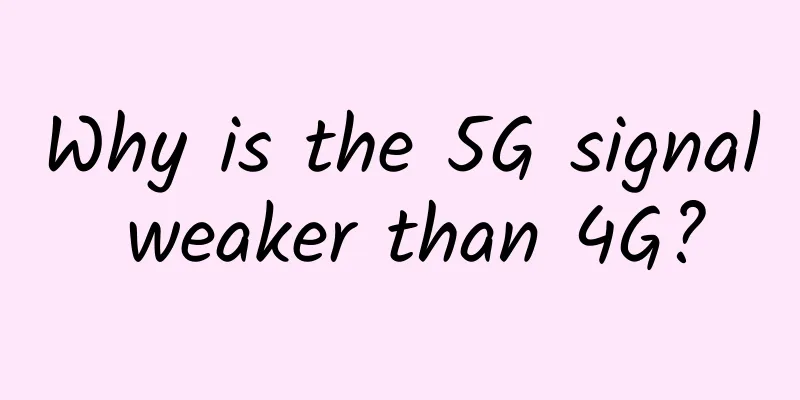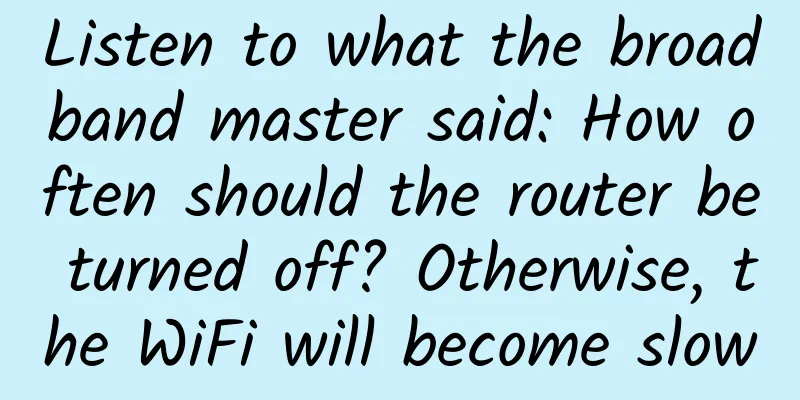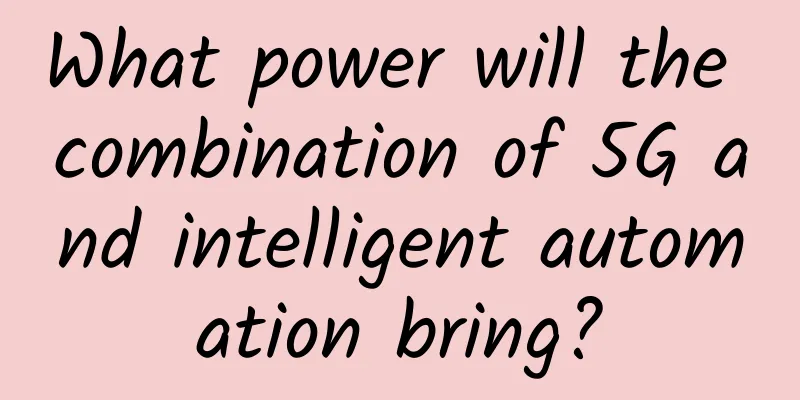Why is the 5G signal weaker than 4G?

|
The advent of 5G technology promises lightning-fast internet speeds and seamless connectivity. However, some users have reported weaker signals compared to previous 4G connections. This article aims to delve deeper into the reasons behind this phenomenon and uncover the factors that cause 5G signals to become weaker. Through research and analysis, we will explore the technical aspects and potential challenges that arise in the implementation of 5G networks. Why is the 5G signal weaker than 4G?The transition from 4G to 5G technology brings many advances, including higher data rates, lower latency, and greater network capacity. However, one common complaint from users is that 5G has weaker signal strength compared to previous 4G connections. There are several factors that contribute to this: 1. Frequency band: 5G networks use higher frequency bands, such as millimeter waves, to transmit data. Although these frequencies provide greater bandwidth and faster speeds, their shorter wavelengths make it difficult to penetrate obstacles such as buildings and trees. Therefore, signal strength weakens over shorter distances, resulting in weaker coverage. 2. Infrastructure Challenges: The deployment of 5G networks requires a major overhaul of infrastructure. Unlike 4G networks, which rely primarily on large cell towers, 5G networks rely on a dense network of small cell base stations. These small cells are installed on street lights, buildings, and other structures to provide coverage. However, the increase in the number of small base stations and their limited coverage may lead to coverage gaps, resulting in weak signals in certain areas. 3. Interference: The higher frequency bands used by 5G are more susceptible to interference from physical objects, atmospheric conditions, and even the human body. This interference can cause signal degradation, resulting in weak connections, especially in crowded urban environments. 4. Early stages of development: 5G technology is still in the early stages of development and deployment. As with any new technology, there will certainly be challenges and limitations at the beginning. As the technology develops, network operators are constantly working to optimize their 5G infrastructure and improve signal strength. FAQ: Is the 5G signal getting weaker everywhere?A: The strength of 5G signals depends on several factors, including location, network infrastructure, and deployed frequency bands. While some users may experience a weak signal, others may enjoy strong coverage, especially in areas where 5G networks are widely deployed. Will 5G signal strength improve in the future?A: Yes. As 5G technology continues to develop, network operators are actively working to improve signal strength and coverage. Ongoing infrastructure improvements, advances in antenna technology, and the deployment of additional small cells are expected to address current limitations and improve overall signal strength. Is there any way to improve 5G signal strength?A: While individual users have limited control over infrastructure, there are several steps that can improve 5G signal reception. These include ensuring a clear line of sight to the nearest cellular tower, minimizing obstructions, and considering using a signal booster or Wi-Fi calling options. In summary, the weaker signal strength experienced by some users in 5G networks compared to 4G can be attributed to a variety of factors, including higher frequency bands, infrastructure challenges, interference, and the early stages of 5G development. As technology advances and network infrastructure improves, these limitations are expected to ease, bringing stronger and more reliable 5G connections to users around the world. |
<<: Cool Knowledge: Learn about RF Antennas in One Article
Recommend
Wi-Fi Alliance: Wi-Fi 6E is the most significant upgrade in 20 years
With the rapid development of mobile devices, the...
Huawei wins "2018 GSMA Mobile Industry Outstanding Contribution Award"
At a special ceremony held last night, GSMA prese...
Why does TCP require three handshakes instead of two?
Hello everyone, I am the island owner Xiaofeng. T...
What is DNS and how does it work?
The Domain Name System (DNS) is one of the founda...
Interviewer: Can you tell me why TCP needs three handshakes and four waves?
The TCP protocol is a connection-oriented, reliab...
Yecao Cloud year-end promotion: Hong Kong VPS annual payment starts from 138 yuan, Hong Kong dedicated server starts from 299 yuan/month
As 2022 is coming to an end, the Chinese business...
F5 focuses on application security architecture and promotes new security strategies of north-south stratification and east-west precision division
[Original article from 51CTO.com] On February 20,...
Ministry of Industry and Information Technology: Nearly 850,000 5G base stations have been built, forming the world's largest 5G independent networking network
According to the Ministry of Industry and Informa...
How to understand 5G air interface (NR)?
The telecommunications industry certainly hopes t...
[11.11] CloudCone: $11.11/year KVM-1GB/40GB/2TB/Los Angeles Data Center
CloudCone also released a special package for Chi...
Juniper Networks focuses on AI technology to fight the epidemic
With the advent of the "post-epidemic era&qu...
V5.NET Hong Kong physical server 40% off, 390 yuan/month-E5-2630L/16GB/480G SSD/10Mbps/2IP
V5 Server (V5.NET) has announced a long-term 40% ...
What exactly can Wi-Fi 6 do?
Let’s first understand the key technologies of Wi...
What to expect from SD-WAN in 2019? Five major trends to watch
There’s probably no hotter topic in networking ci...
Liu Liehong from the Ministry of Industry and Information Technology: 5G has become an important driving force for high-quality economic development
The 2021 Mobile World Congress (MWC) Shanghai Exh...








![[6.18]spinservers: $89/month-2*E5-2630Lv3/64GB/1.6TB NVMe/10Gbps bandwidth/Silicon Valley data center](/upload/images/67cabe68b64e4.webp)
